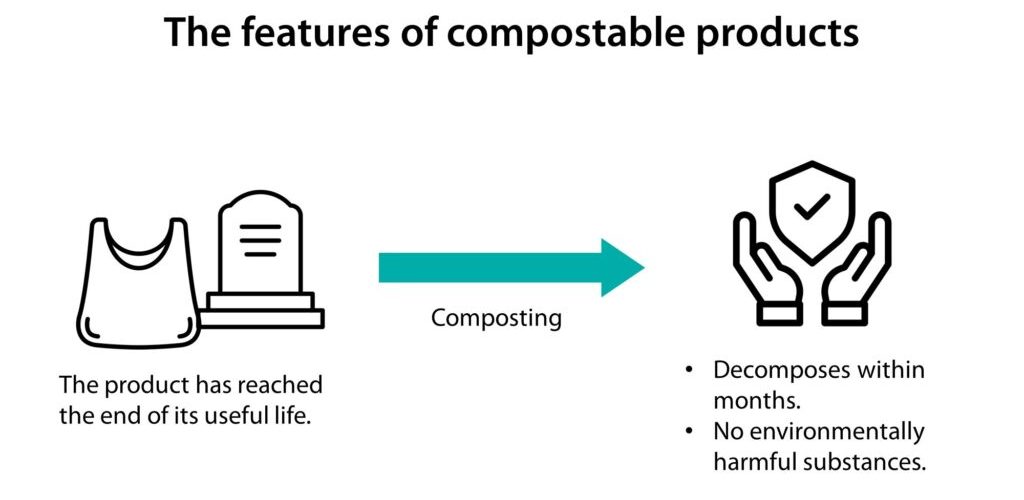Compostable products offer several environmental benefits, contributing to sustainability and reducing the environmental impact associated with traditional, non-biodegradable materials. Here are some key advantages of compostable products:
- Reduced Waste in Landfills:
– Compostable products break down into nutrient-rich compost in composting facilities, diverting organic waste from landfills. This helps reduce the volume of waste in landfills, which can lead to environmental problems such as soil and water pollution.
- Nutrient-Rich Soil Amendment:
– The compost produced from compostable products can be used as a natural fertilizer and soil conditioner. It enriches the soil with essential nutrients, improves soil structure, and enhances water retention, promoting healthier plant growth.
- Lower Carbon Footprint:
– Composting organic materials instead of sending them to landfills reduces greenhouse gas emissions. In landfills, organic waste undergoes anaerobic decomposition, producing methane, a potent greenhouse gas. Composting, on the other hand, promotes aerobic decomposition, minimizing methane emissions.
- Renewable Resources:
– Many compostable products are made from renewable resources such as plant-based materials (e.g., cornstarch, sugarcane, or bamboo). Using renewable resources helps decrease reliance on finite fossil fuels and contributes to a more sustainable, circular economy.
- Conservation of Resources:
– Compostable products often require fewer resources (energy and materials) to produce compared to traditional, non-biodegradable alternatives. This can result in a lower environmental impact throughout the product’s life cycle.
- Promotion of Sustainable Practices:
– The use of compostable products encourages consumers and businesses to adopt more sustainable practices. It raises awareness about the environmental impact of single-use items and supports a shift toward eco-friendly alternatives.
- Composting Infrastructure Development:
– The demand for compostable products can drive the development of composting infrastructure, including industrial composting facilities and community composting programs. Increased infrastructure supports more widespread composting, improving overall waste management practices.
- Closing the Resource Loop:
– Composting creates a closed-loop system where organic materials are returned to the soil, completing the natural nutrient cycle. This contrasts with the linear model of extracting, producing, using, and disposing of products that is characteristic of many traditional materials.
While compostable products offer these benefits, it’s important to note that their effectiveness depends on proper disposal and management. Compostable items must be directed to appropriate composting facilities to realize their full environmental potential. Additionally, awareness and education play a crucial role in ensuring that consumers understand how to properly dispose of compostable products.



No comments yet.